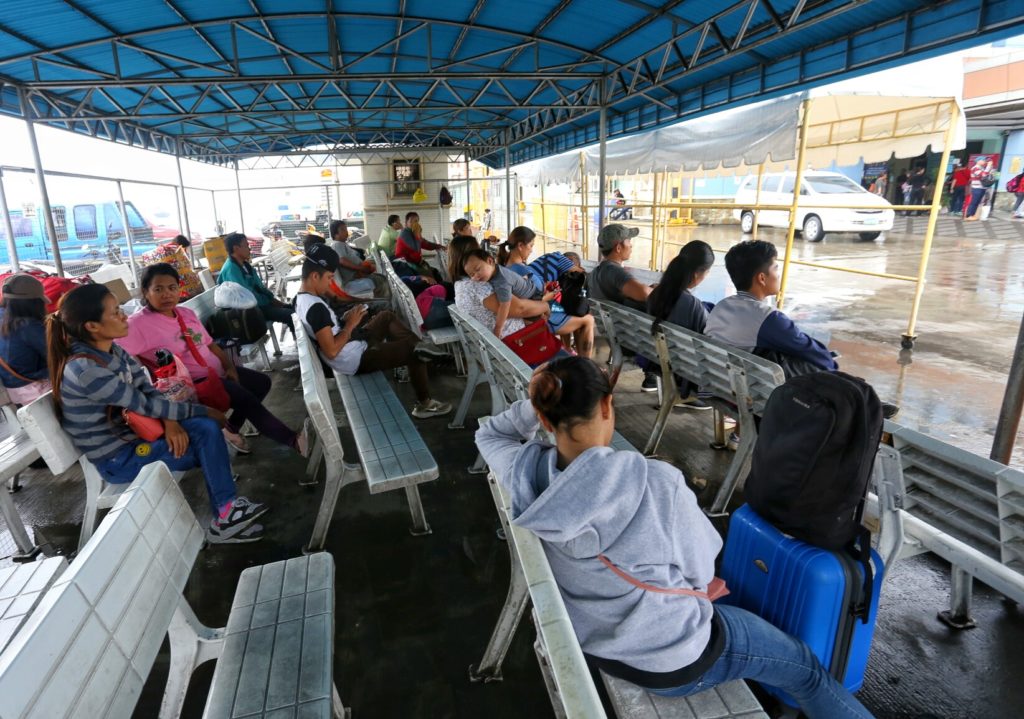Close to 300 individuals were left stranded from several ports in Cebu province due to rough seas present in the Visayas region brought by Tropical Storm Urduja.
Data from the Philippine Coast Guard – Cebu Station (PCG – Cebu) revealed that a total of 22 passenger ferries, and nine cargo ships, were grounded as of 12 noon today. They also accounted a total of 280 passengers who were left stranded after their voyages were cancelled.
Most of the vessels were bound for areas in Southern Leyte such as Ormoc City, the towns of Maasin, Villaba, Palompon, and Isabel.
The state weather bureau, the Philippine Atmospheric Geophysical and Astronomical Services Administration (Pagasa), hoisted storm signal no. 1 on Northern Cebu which includes Bantayan Island, Southern Leyte, Biliran Island, Aklan, Capiz, Northern Iloilo, Romblon, Masbate, Sorsogon, Albay, Camarines Sur, Catanduanes, Eastern Samar, and Northern Samar.
On the other hand, Department of Education – Cebu Province (DepEd – Cebu) Division Superintendent Rhea Mar Angtud announced that all classes in pre-elementary and elementary levels, both public and private, all over the province are suspended today and tomorrow due to Urduja’s presence.
“Cebu Gov. Hilario Davide III announced the decision. It’s up to LGUs’ (local government units) discretion to suspend classes in the secondary level,” Angtud said.
LGUs of Daanbantayan, Santa Fe in Bantayan Island, and Sogod in northern Cebu have expanded the suspension of classes to the secondary level.
Urduja has intensified from a tropical depression into a storm as of the 2 p.m. severe weather bulletin issued by Pagasa. The storm’s eye was last spotted 90 kilometers southeast of Guiauan, Eastern Samar.
It has maximum sustained winds up to 80 kilometers per hour near the eye, and 65 kilometers per hour on its outer bands. Pagasa forecasted Urduja, which is moving west at speed of seven kilometers per hour, to make landfall on Eastern Samar tomorrow morning.
